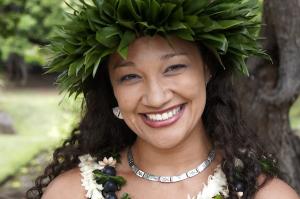New degree in Native Hawaiian and Indigenous Health launched
University of Hawaiʻi at MānoaContact:
Tina M Shelton, (808) 692-0897
Director of Communications, Office of Dean of Medicine
Maile Tualii, (808) 591-6653
Program Director, Office of Public Health Studies
Director of Communications, Office of Dean of Medicine
Maile Tualii, (808) 591-6653
Program Director, Office of Public Health Studies
Posted: Mar 7, 2013
The Office of Public Health Studies, part of the John A. Burns School of Medicine (JABSOM) at the University of Hawai`i at Mānoa, in partnership with the JABSOM Department of Native Hawaiian Health, is launching a new Native Hawaiian and Indigenous Health specialization within the Master of Public Health Program.
The program's global focus makes it the only one of its kind. The purpose of this program is to prepare students for leadership roles in Indigenous health, policy, research and culturally safe practices and services.
“Native Hawaiians experience some of the State’s worst health outcomes,” said Dr. Maile Taualii, Native Hawaiian and Indigenous Health Program Chair. “The life expectancy for Native Hawaiians is 13 years less than that of other populations.”
Dr. Taualii said that graduates of the new program will be better prepared to meet the social and cultural needs of Native Hawaiians and Indigenous Peoples, enhancing the quality and effectiveness of the health services in these communities.
“We believe a very real result will be to help improve the health and wellness of our community, and to reduce the health inequalities they suffer,” said Dr. Taualii.
A recent study in the American Journal of Public Health reported that the infant mortality rate for Native Hawaiians is twice that of the general population (7.9 per 1000 vs. 3.5 per 1000). Infant mortality is a powerful indicator of population health and it is often used to demonstrate health inequalities. These patterns of poor health outcomes are mirrored in Indigenous populations globally.
Researchers believe an explanation for these poor health patterns lies in understanding the unique social, cultural, political, and historical context of health for all Indigenous Peoples. “Many of the current inequalities are the result of historical, national and local policies designed to eliminate and/or assimilate Indigenous Peoples,” explained Dr. Taualii.
Students will prepare to work effectively with Indigenous communities through course work in the core public health curriculum, Native Hawaiian and Indigenous Health specialization courses, and “hands-on” practicum placement opportunities, both locally and internationally.
The program will welcome its first class in the Fall of 2013. Applications can be submitted to the Graduate Admissions Office at the University of Hawai`i at Mānoa. Faculty members in the program will include: Program Chair Dr. Maile Taualii (Native Hawaiian); Dr. Treena Delormier (Mohawk, First Nations from Kahnawake, Canada); and Dr. Alika Maunakea (Native Hawaiian).
For more information, visit: http://www.hawaii.edu/publichealth

